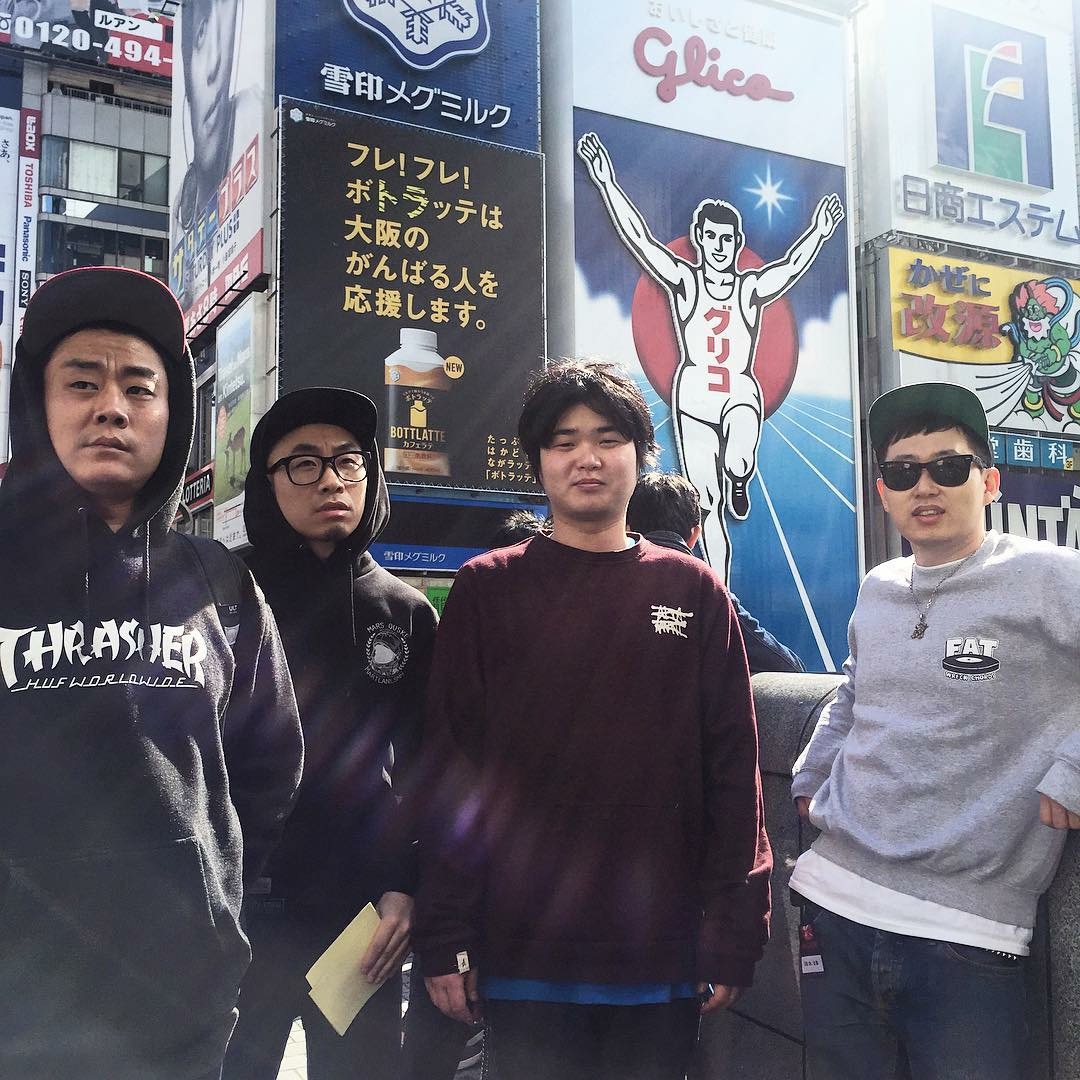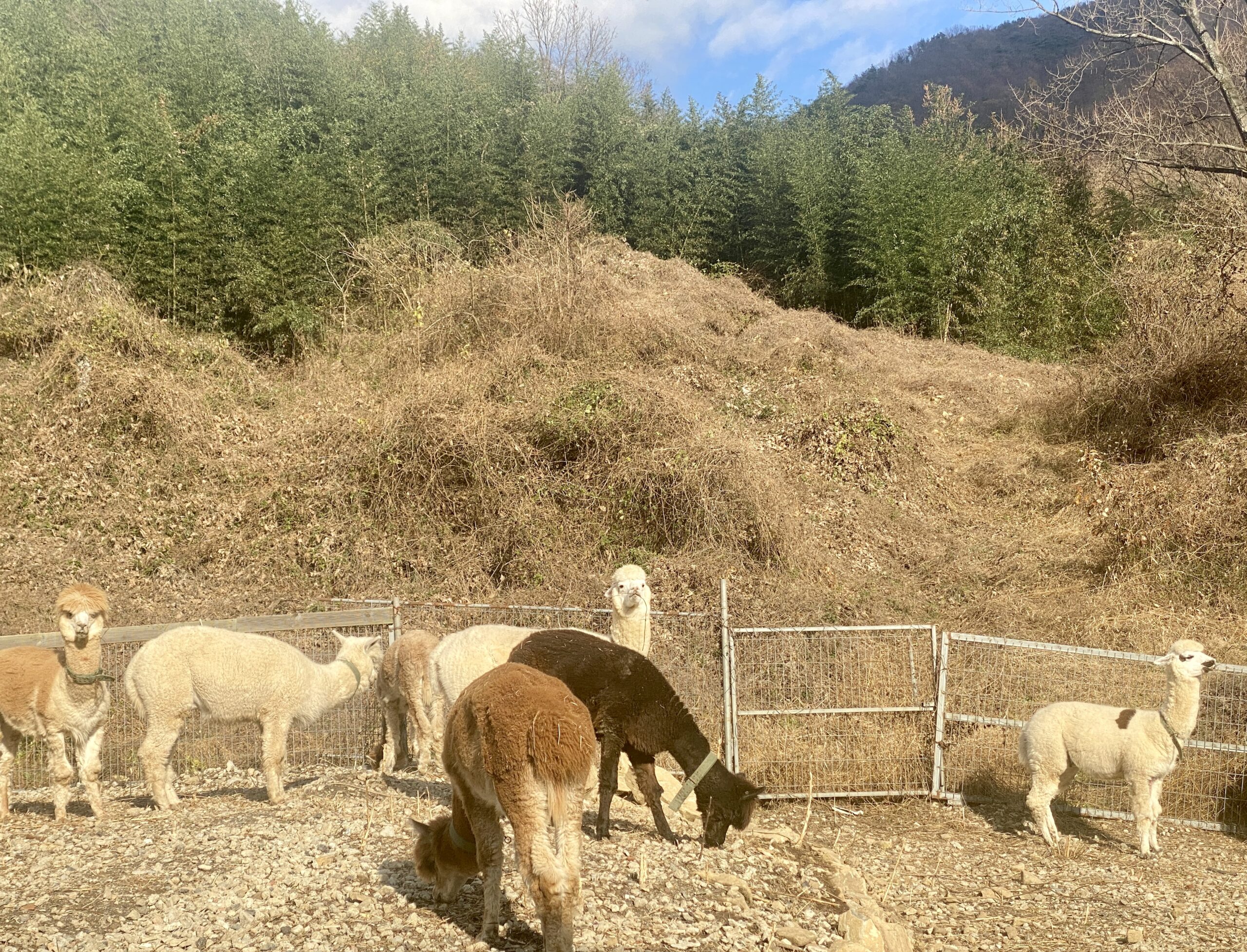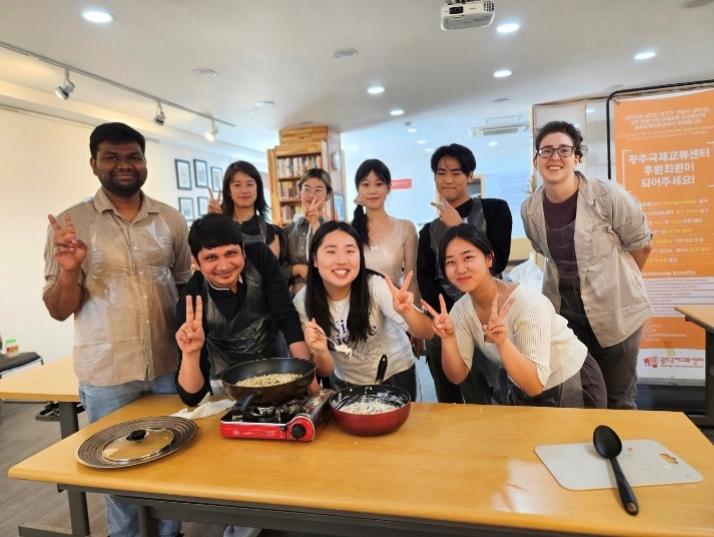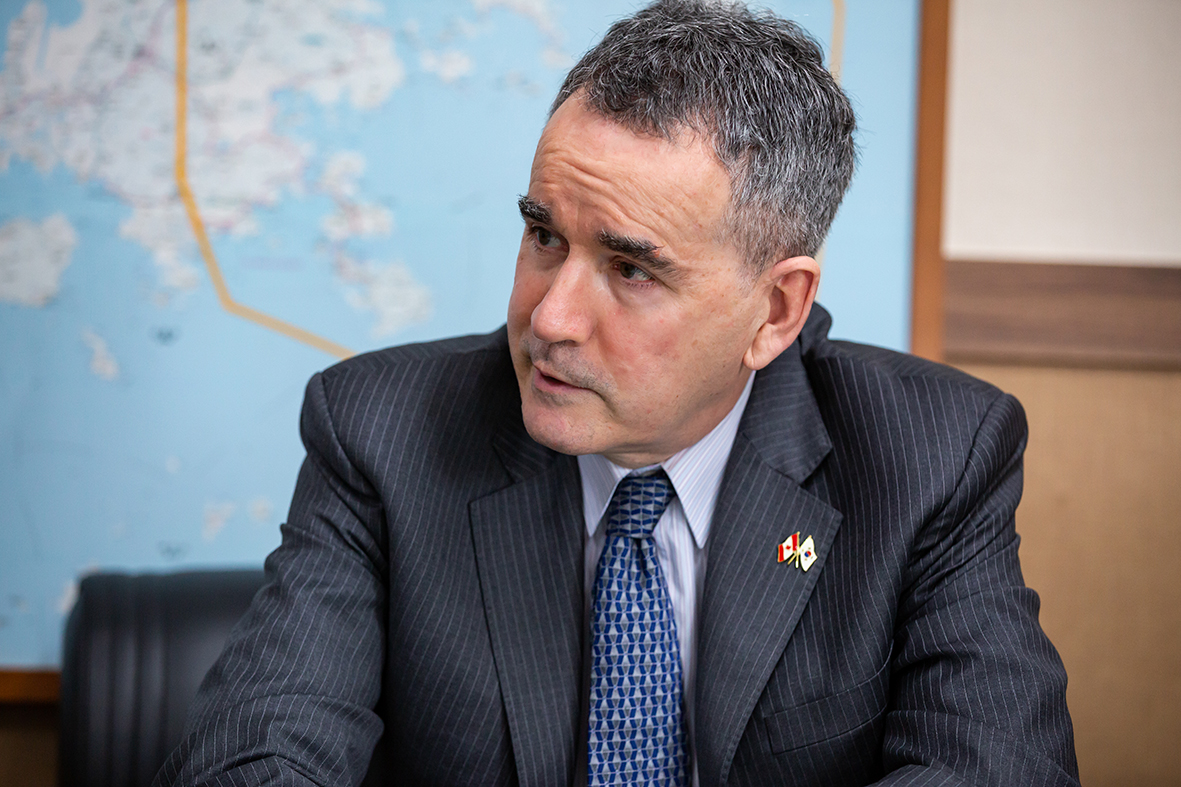Interview with the Canadian Ambassador to Korea
Interview by Arlo Matisz.
Photographs by Kim Hillel Yunkyoung.
Michael Danagher has worked in Korea in multiple roles, including Senior Trade Commissioner and Minister-Counsellor of the Embassy of Canada. He was appointed as Ambassador to the Republic of Korea in September 2018. The ambassador recently visited Gwangju in connection with the opening of this year’s Biennale. What follows is the interview conducted by Arlo Matisz while the ambassador was visiting.
Arlo Matisz: Thank you for joining us here in our city. If I may ask, what brought you to Gwangju?
Ambassador Michael Danagher: I am the ambassador to Korea, and of course I like to get out of Seoul. Not because I do not like Seoul but I am the ambassador to the entire country. My trip to Gwangju is overdue, but it was delayed because of the COVID-19 pandemic. This is my third assignment to Korea, and I have visited Gwangju many times before. This is my first official visit as ambassador though.
Arlo: What were you involved in when you were here before?
Amb. Danagher: Mostly it was professional, on official assignments. I was a trade commissioner in the past, so I would come here on trade development activities. Since then, I have been back in Jeonnam a few times. There was the Yeosu Expo with some Canadian activities associated with that in the marine industry. I have been down to Gwangyang a few times for meetings with POSCO, too.
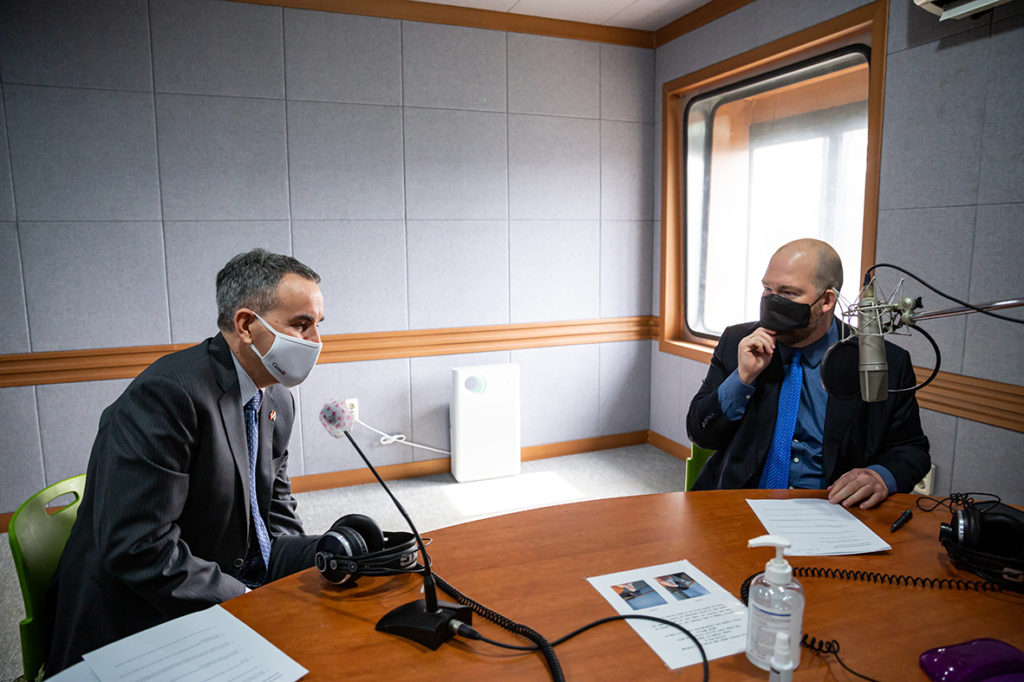
Arlo: What are some of the unique opportunities and challenges that come with being Canada’s ambassador to South Korea?
Amb. Danagher: I think the challenges with the position are the challenges in the relationship. I think Canada and Korea are two countries that have a lot of shared history, but it is not necessarily history that is well understood or well known. I think we want to leverage those historical connections – very strong people-to-people connections – into other areas, for example, cooperation on global policy. That could mean anything from development, respect for human rights, environmental issues, but also in enhancing our bilateral economic relationship, which is an important one for Canada. This may be slightly less obvious for Korea, just from the perspective that Korea’s economy is more diversified than Canada’s. But still, there is huge potential here, and in fact, I was at a meeting with the photonics institute here, and this is one area where there is some cooperation with institutions and companies in Canada. I would like to enhance that.
Arlo: I’d like to talk about something specific to Gwangju, the 5.18 Democratic Uprising. Did Canada, at the time of it, have any official stance, and is there any modern recognition?
Amb. Danagher: Looking back at our historical record, there does not seem to be particular intervention made by Canada on this, but that is not to suggest that there was no interest. Certainly, what we are aware of is that the Korean community in Canada was very well aware of what was happening and made a number of demonstrations in Canada advocating on behalf of the protesters here. In terms of modern recognition, again there is a general feeling that this was an important and seminal event in modern Korean history, and particularly in the development of democracy in this country. Part of the reason I am here is to recognize that. I was at the cemetery; it was a very moving visit. We were told about the individuals who had unfortunately lost their lives and were interred there. I think this is a time of reflection for me personally, but hopefully I will be able to share that experience with a wider audience and have recognition outside of Korea in Canada of what it took to develop this modern Korea.
Arlo: It’s something that people are quite proud of here, and it seems like something that gets forgotten, or these days there’s some misdirection that North Korea was involved with it.
Amb. Danagher: We live in an era of accusations of fake news, and that is not a new thing, but it is an amplified thing. I just watched the movie A Taxi Driver and clearly there were, if you are following that narrative, clear efforts to control the narrative, and that German reporter went to great lengths to try to expose it. In a way, it reminded me of Dr. Frank Schofield, who was one of the earlier Canadian residents in Korea. We celebrated him two years ago as one of the Canadians who had been here as part of the March 1st Independence Movement, and he did the same thing. He apparently bicycled down from Seoul to Hwaseong to investigate the atrocity that had been committed there against parishioners of a church, and he published the first reports of what was happening in Korea outside of Korea in 1919. We give him credit as being one of the investigative journalists who was telling the world what was happening. When watching A Taxi Driver, it reminded me of the same role and the risks that had been taken. Of course, the element of the story with the local gentleman who had been his partner in that enterprise is missing from Schofield’s experience, but it is interesting that someone once said, “History doesn’t repeat, but it rhymes.”
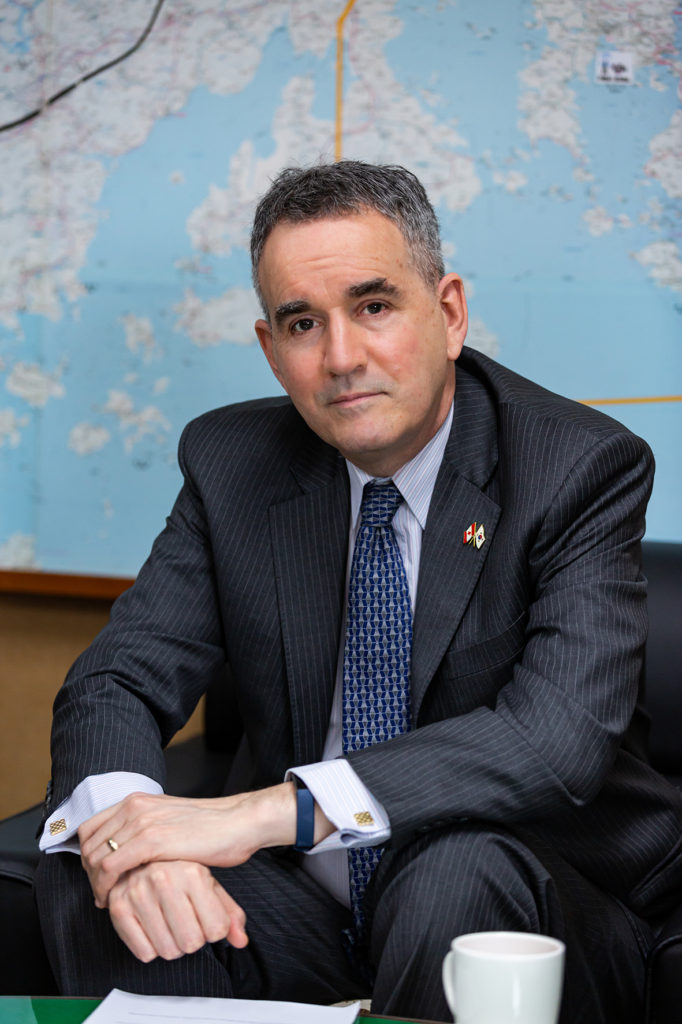
Arlo: Were there ways that Canada was supporting Korea’s democratization as it happened? You were here while some of that transition was happening in the early 1990s.
Amb. Danagher: Given the zeitgeist of the time, there was a lot of positive energy in Korea about democracy, and there was a restoration of democracy in the country. There was a lot of enthusiasm. As Koreans started to redevelop their habits of good governance, they turned to countries like Canada for advice and assistance. It was a very powerful time. Canada was a strong supporter of Korea when it joined the OECD in 1997. That mostly reflects the economic development of a country, but it reflects the development of social infrastructure as well. It is a group of liberal democracies, not just developed economies. Of course, our biggest support of Korea’s democracy was during the Korean War.
Arlo: Last year was the 70th anniversary of the beginning of the Korean War. I think Canada’s contributions to the war are overshadowed by the framing of the Cold War and the continuing US military presence here. What would you like Koreans to know about Canada’s efforts during the war?
Amb. Danagher: Canada was one of the UN contributing states then, and in terms of number of participants, Canada’s contribution was third among the UN states after the US and the UK. This represented a substantial commitment at the time: It was 27,000 troops in total over the course of the war, and at the time, Canada’s population was only about 10 or 11 million, so you can imagine that, quite frankly, this was a war that impacted a lot of households in Canada. Without sounding trite, I am sure most of those people could not have placed Korea on a map. Those people who shipped out of Vancouver and Tacoma to come over here, they did not know what was going on in Korea. They certainly had only vague ideas of communism. We were going to a place to fight communism; that was the narrative. For many years, the Korean War was called “the forgotten war.” Now, it is memorialized in Canada. We have, I believe, 250 or 300 different memorials across Canada to our participation in the Korean War, including the war memorial in Ottawa, where the dates of the Korean War were placed, I think, about 30 years ago. It is now recognized for what it is: Canada’s third largest military engagement in its history. What would I like Koreans to remember? That Canada cared, that Canadians came over. I remember being at the Daejeon Expo in 1993, where an older gentleman came up to me and said, “Where are you from?” I said, “Well, I’m from Canada.” He said, “I’ve never met a Canadian before. I remember as a young boy that Canadians came to fight for Korea’s independence.” I was very moved that this gentleman had remembered that. That is a legacy of Canada’s history here, and I think that is one that many Koreans remember. We at the embassy certainly support events to commemorate that presence. In fact, next month we will be celebrating the 70th anniversary of the Battle of Kapyeong (가평전투), which was the major engagement of the Canadian troops along with their Commonwealth allies, so we are going to be doing a number of activities related to that. If anyone is interested in that, please just follow our social media and you will learn more.
Arlo: Were there ways that Canada supported the advancement of human rights in Korean history, and are there any areas where there are still concerns, on an official level?
Amb. Danagher: On an official level, we respect the fact that Korea is a well-developed liberal democracy and has a consultative process, a political process. It is not always a smooth one; there is a lot of energy, but I would not in any way suggest that Korea is out of a norm that countries like Canada are part of. I refer to The Economist magazine that, in a recent analysis of the most democratic countries in the world, placed Canada and Korea in the top rank. That tells me a lot. There are going to be contentious issues in both countries that still have to go through the democratic process, and some of them are in place right now in Korea. We have expressed our voice in terms of supporting a general respect for individual rights here, including Korea’s international undertaking on issues of discrimination. However, we understand that there is a debate going on in this country on that, and we have to respect that debate. In general, I think what we find in Korea is very positive, and it is no longer a situation where a country like Canada can sit here and pretend that we are in general judgment. Individual issues will come up, and we may or may not choose to comment on those.
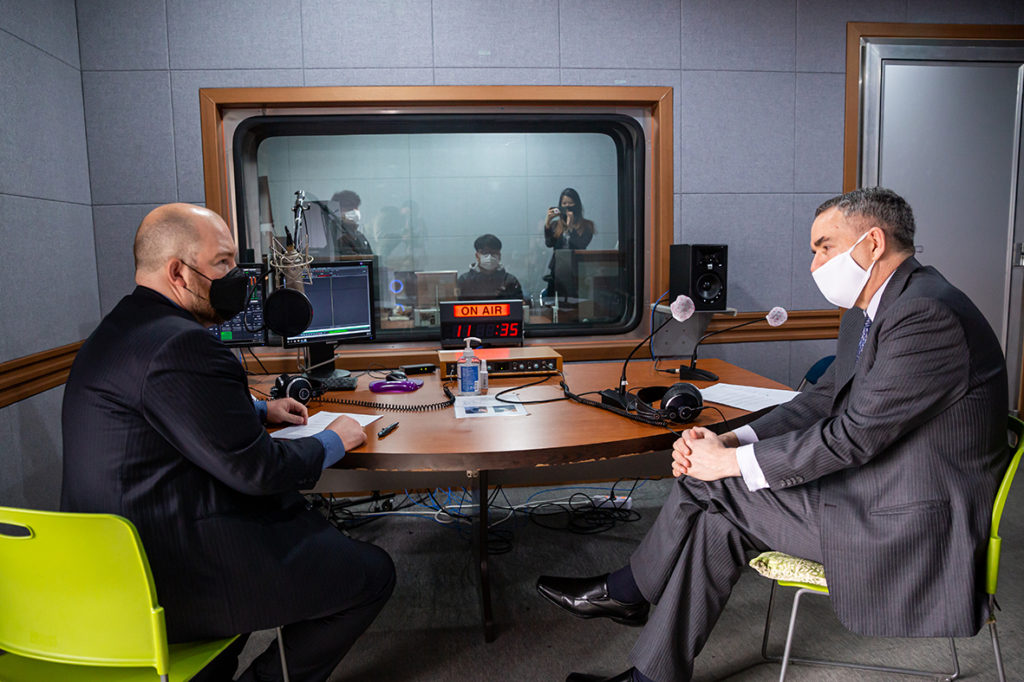
Arlo: You were here taking a look at some work for the Gwangju Biennale.
Amb. Danagher: I was, yes. Unfortunately, I could not meet the Canadian artists, but we saw an installation yesterday. I think, in general, the message from the Biennale is that they value Canada’s contribution on this, and so we are very excited about that and looking forward to the future when we are in a post-COVID-19 environment where the true purpose of the Biennale, which is to extend art as something that precipitates discussion – a dialogue within society – is a little less artificial because it will no longer be constrained by this COVID-19 reality of ours. When you have people coming and going, and fully enjoying what a biennale is, which is an international exchange, it is at the full height of its potential. We are very happy to see the Biennale take place in 2021, but I do not think anybody is underestimating the limitations of the current environment. That it is happening is a small miracle, and we’re very pleased to see the courage of the organizers and very happy to have a Canadian contribution, however modest.
Arlo: How has the pandemic affected soft diplomacy, such as cultural exchanges like the Biennale, and how is our country trying to fill that gap?
Amb. Danagher: That is a big question, and I do not really know all the dimensions of it, to be honest with you. On a country-specific basis, cultural promotion is something that is important personally to me; I think it ties together a lot of the elements of what Canada’s trying to do on many different fronts here: the political dimension, the commercial engagement, even our people-to-people relationships. You are quite right to point out that COVID-19 has had an impact as much as anything else. On the other hand, we have still been able to do quite a bit from the embassy over that period. We have had a few online film festivals, we have done some literary programs, we were the main sponsor of the Ulju Mountain Film Festival (울주산악영화제), and I am using my social media to promote some of our Canadian culture. For example, it is a very modest contribution, but I will be showcasing some Canadian literature over the next few months. I would like to do the same thing with film and art as well. I think it is a reality that Canadian culture is not necessarily as distinctively known as other cultures, and part of that of course is because of this “blender” that North America represents. Quite often, people will say to me, “Oh, I didn’t know that person was Canadian.” And in many respects, they are not entirely wrong, because whether it is a musician or an author or an artist, quite often they have made their reputation outside of Canada.
Arlo: As a Canadian abroad, I can relate to that sentiment. Thank you for your time, Mr. Ambassador.
Note: In regard to the Canadian artists who are exhibiting work for the Gwangju Biennale, they are Chrysanne Stathacos and Judy Radul. Their respective works for the Gwangju Biennale are being shown at the Gwangju National Museum and the Gwangju Theater.
Elements of this interview aired on GFN’s City of Light on March 5 as a radio broadcast.

